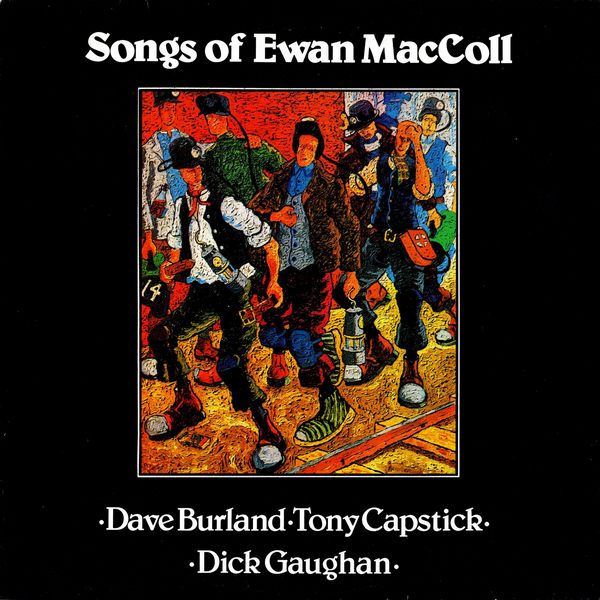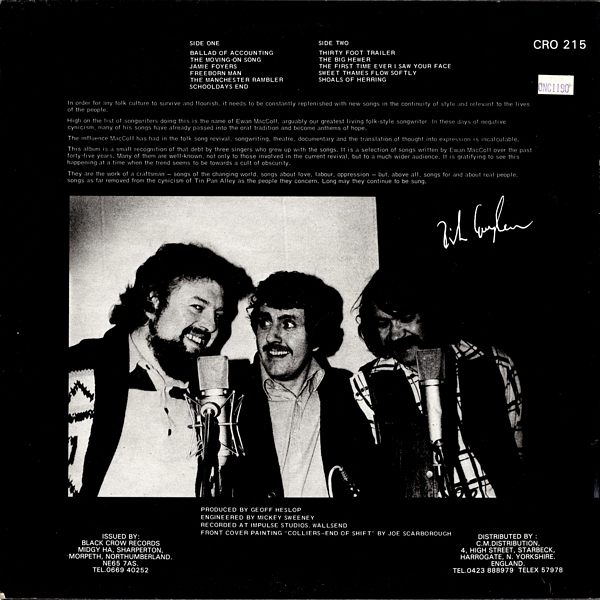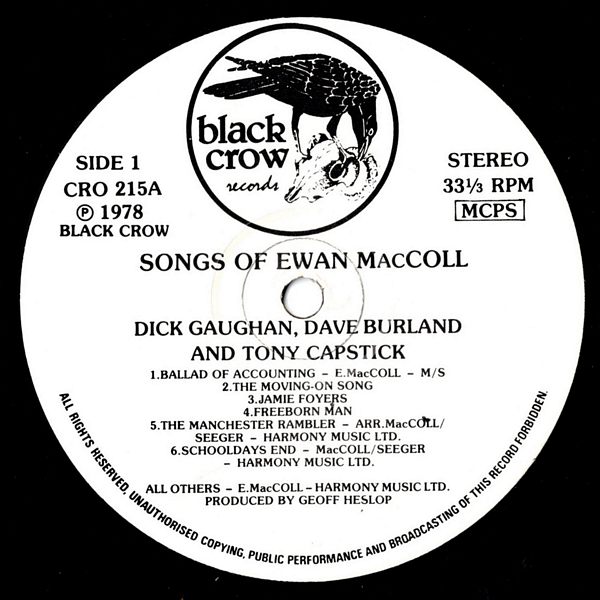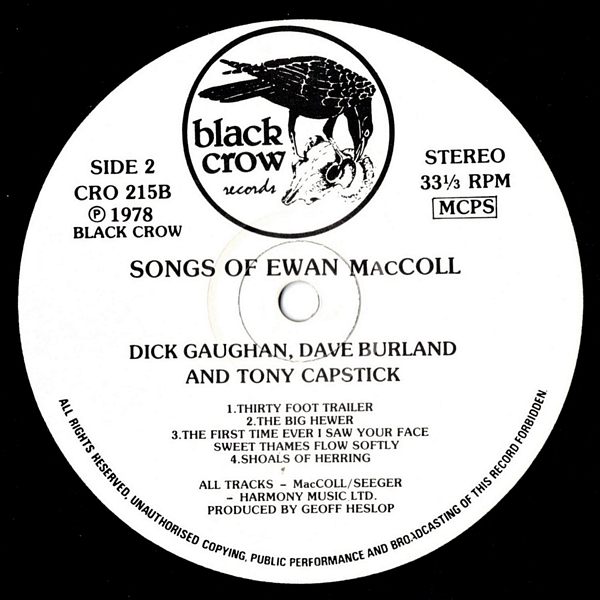
 |


 |
Sleeve Notes
In order for any folk culture to survive and flourish, it needs to be constantly replenished with new songs in the continuity of style and relevant to the lives of the people.
High on the list of songwriters doing this is the name of Ewan MacColl, arguably our greatest living folk-style songwriter. In these days of negative cynicism, many of his songs have already passed into the oral tradition and become anthems of hope.
The influence MacColl has had in the folk song revival, songwriting, theatre, documentary and the translation of thought into expression is incalculable.
This album is a small recognition of that debt by three singers who grew up with the songs. It is a selection of songs written by Ewan MacColl over the past forty-five years. Many of them are well-known, not only to those involved in the current revival, but to a much wider audience. It is gratifying to see this happening at a time when the trend seems to be towards a cult of obscurity.
They are the work of a craftsman — songs of the changing world, songs about love, labour, oppression — but, above all, songs for and about real people, songs as far removed from the cynicism of Tin Pan Alley as the people they concern. Long may they continue to be sung.
Dick Gaughan